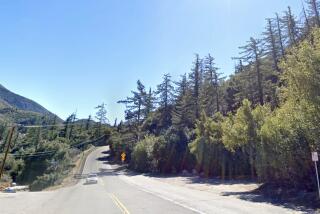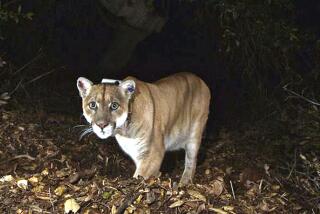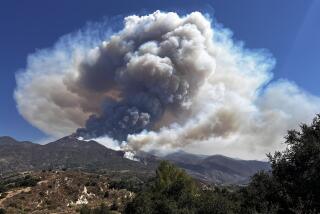Wilderness designations proposed for 30,200 acres in the western San Gabriel Mountains
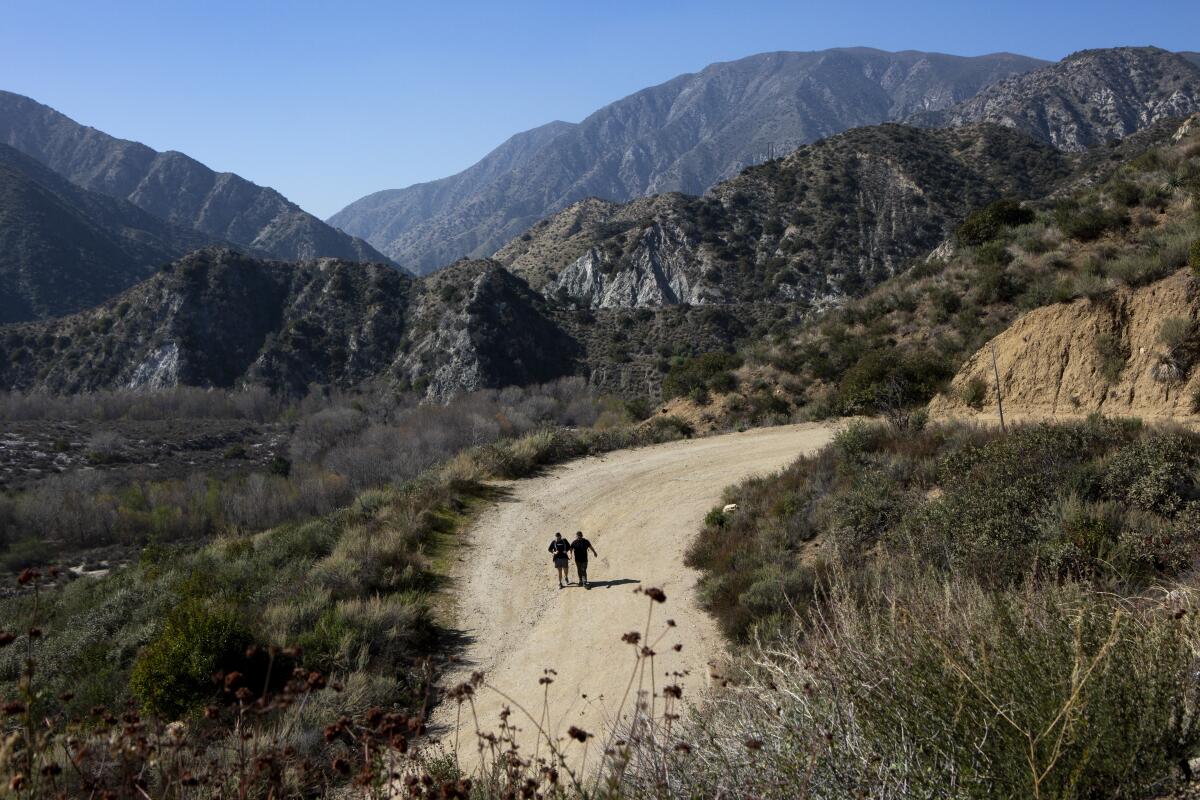
To reach a vast tableau of pristine canyonlands an hour’s drive from Los Angeles, a group of conservationists on Saturday trudged along a trail that wiggles up steep slopes and along forested streams in the western Angeles National Forest.
Finally, they stood on a cliff edge with a panoramic view of dramatic Canyon Trail Falls, which plummets 30 feet to the ground at the boundary of an area that, despite all the pressures beating in upon it, has changed little in thousands of years.
Giving the vista an approving nod, Daniel Rossman, California deputy director for the Wilderness Society, said, “It’s an awesome sight in the backyard of millions of Angelenos, who have no idea that it exists.”
“With federal protection and improved access,” he added, “this place will be irresistible to hikers.”
The area is among 30,200 acres of land in the San Gabriel Mountains proposed for federal wilderness protection under a bill authored by Rep. Judy Chu (D-Monterey Park) and included in a package of conservation bills expected to be presented to the House on Wednesday.
“I’ve always seen the San Gabriel Mountains as a crown to the Los Angeles area,” Chu said. “Having such beautiful rivers, forests, and mountain trails so close to the density of Los Angeles is a true gift, especially for the millions who have little to no access to parks or any green space.”
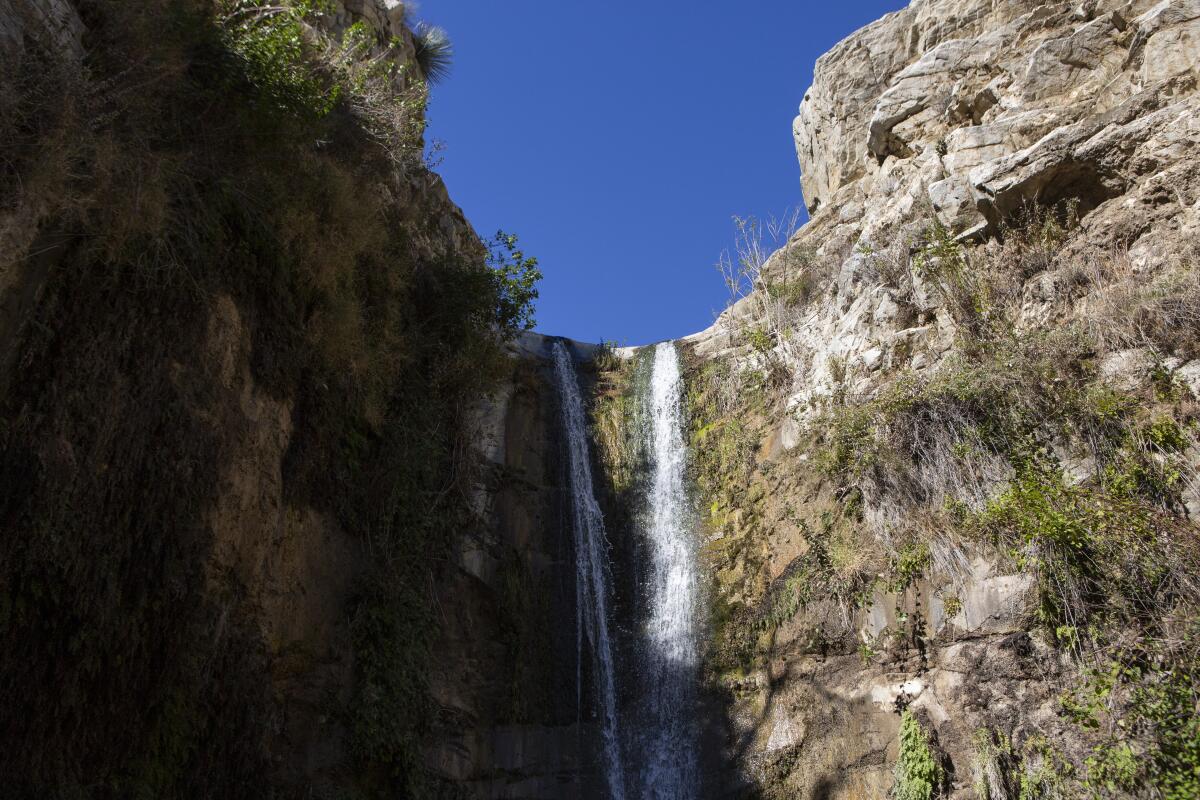
Roughly half of the proposed wilderness areas are at the western end of the San Gabriel Mountains in a region left out of the San Gabriel Mountains National Monument designated in 2014 by then-President Barack Obama.
“This is an exciting next step in securing protection for the wildlands of Los Angeles,” said Jonathan Parfrey, executive director of the nonprofit Climate Resolve.
Under Chu’s bill, the lands would remain open to hiking, camping and other recreational activities encouraged in the adjacent monument.
The bill would also expand the monument by 109,167 acres, establish a 49,387-acre San Gabriel National Recreation Area and add about 45 miles to the region’s National Wild and Scenic Rivers System.
It is backed by the city and county of Los Angeles and environmental and outdoor recreation organizations including the Nature Conservancy, the Wilderness Society, Latino Outdoors and the Sierra Club.
To become law, the bill would need approval by the Senate, along with the president’s signature amid a push by the Trump administration to increase industrial use of public lands and waters nationwide.
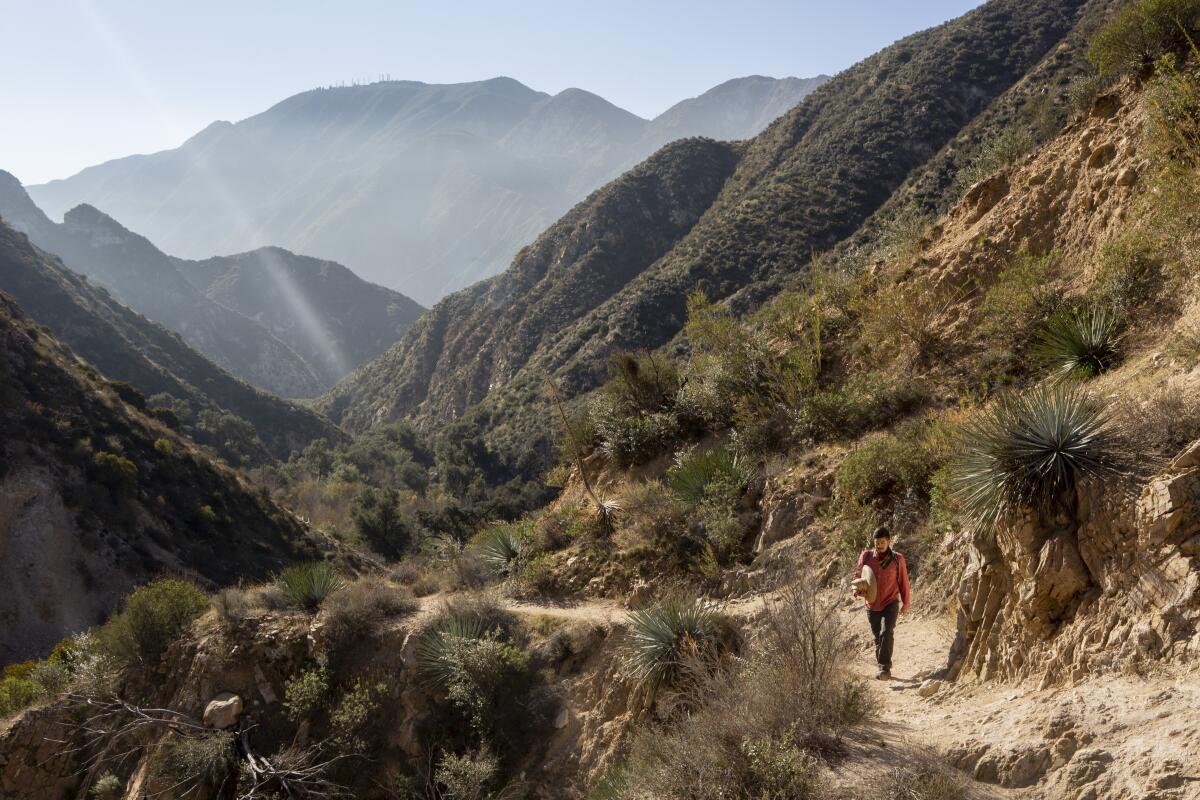
But for local conservationists, the bill before the House represents a significant step toward realization of their dream of creating a network of protected wildlife corridors and refuges extending from the Cajon Pass in the east to the Santa Monica Mountains National Recreation Area in the west.
“Just getting this bill through the House is a high-water mark for our cause,” said Rossman, who has been working to further protections for the San Gabriel Mountains for more than a decade.
Creation of the monument — 346,000 acres of alpine peaks, lush canyonlands and rivers that lure 4 million annual visitors — was only a start.
The visit to the waterfall on Saturday offered a glimpse of the ecological wealth that once characterized the entire San Gabriel Mountain range. Virtually every inch is covered by sheltering vegetation: grass, chaparral, oaks, alders and pine trees.
Bears and mountain lions prowl wind-swept ridgelines. Ring-necked snakes take refuge beneath fallen logs. Western newts, water striders and algae blooms contribute to the vitality of spring-fed streams that tumble down rocky canyons spiced with aromatic yerba buena and black sage.
“It hasn’t been easy winning the kinds of protections these mountains deserve,” Rossman said, gazing out at the waterfall. “But I’m pretty sure anyone who hikes to this awesome natural wonder will see things our way.”
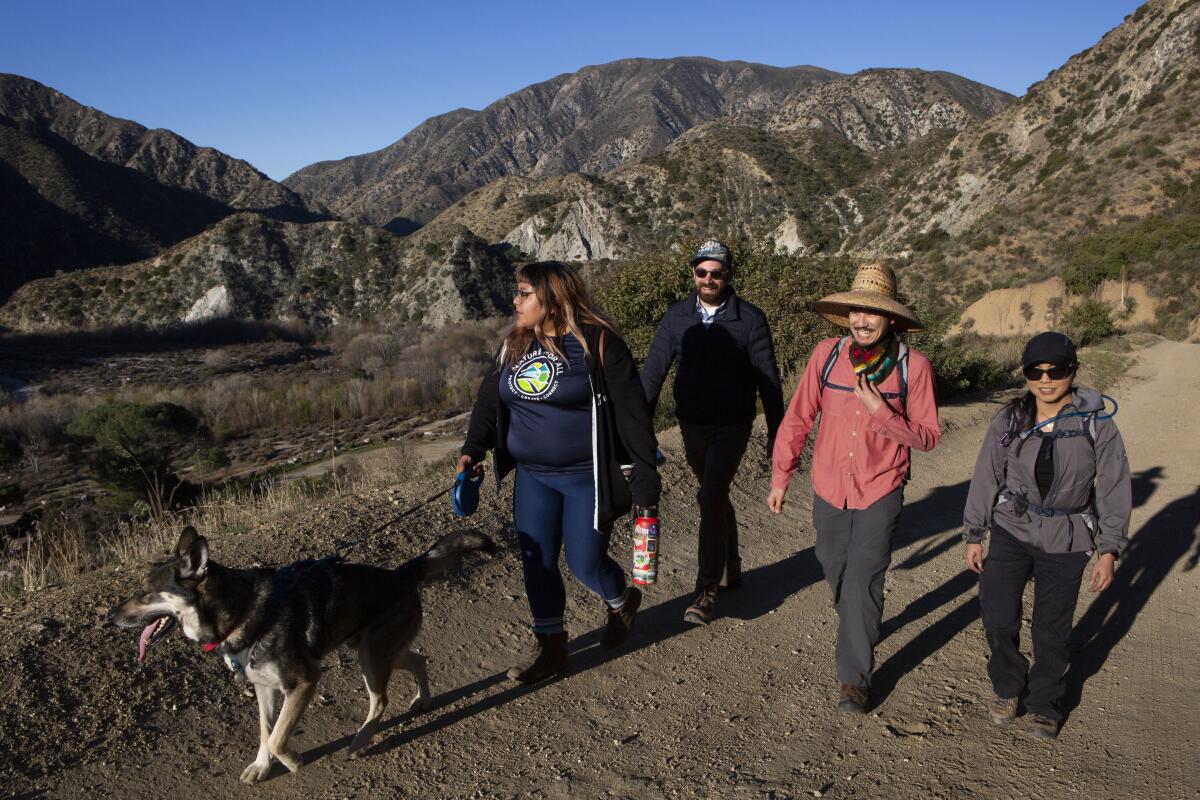
More to Read
Sign up for Essential California
The most important California stories and recommendations in your inbox every morning.
You may occasionally receive promotional content from the Los Angeles Times.
